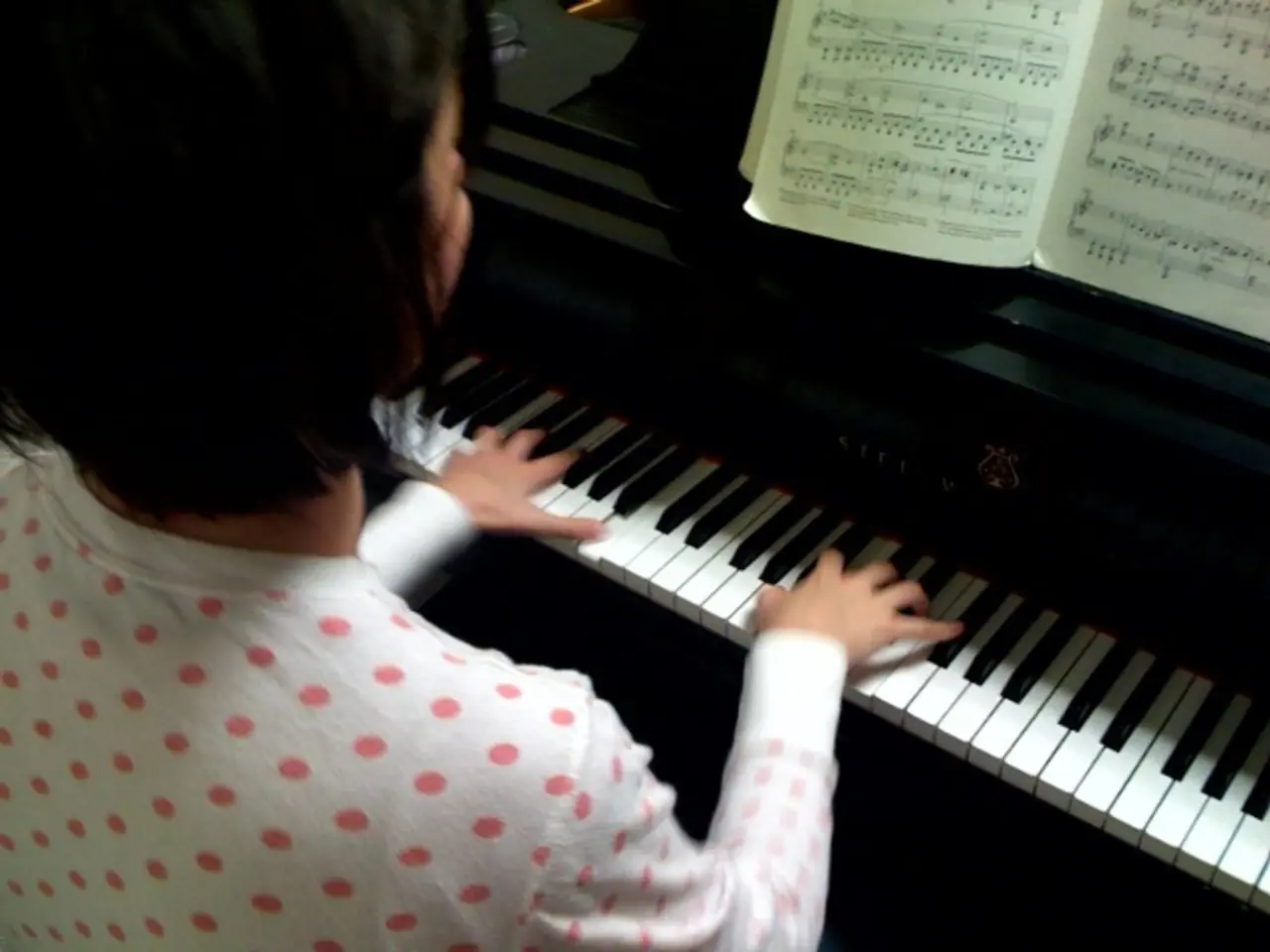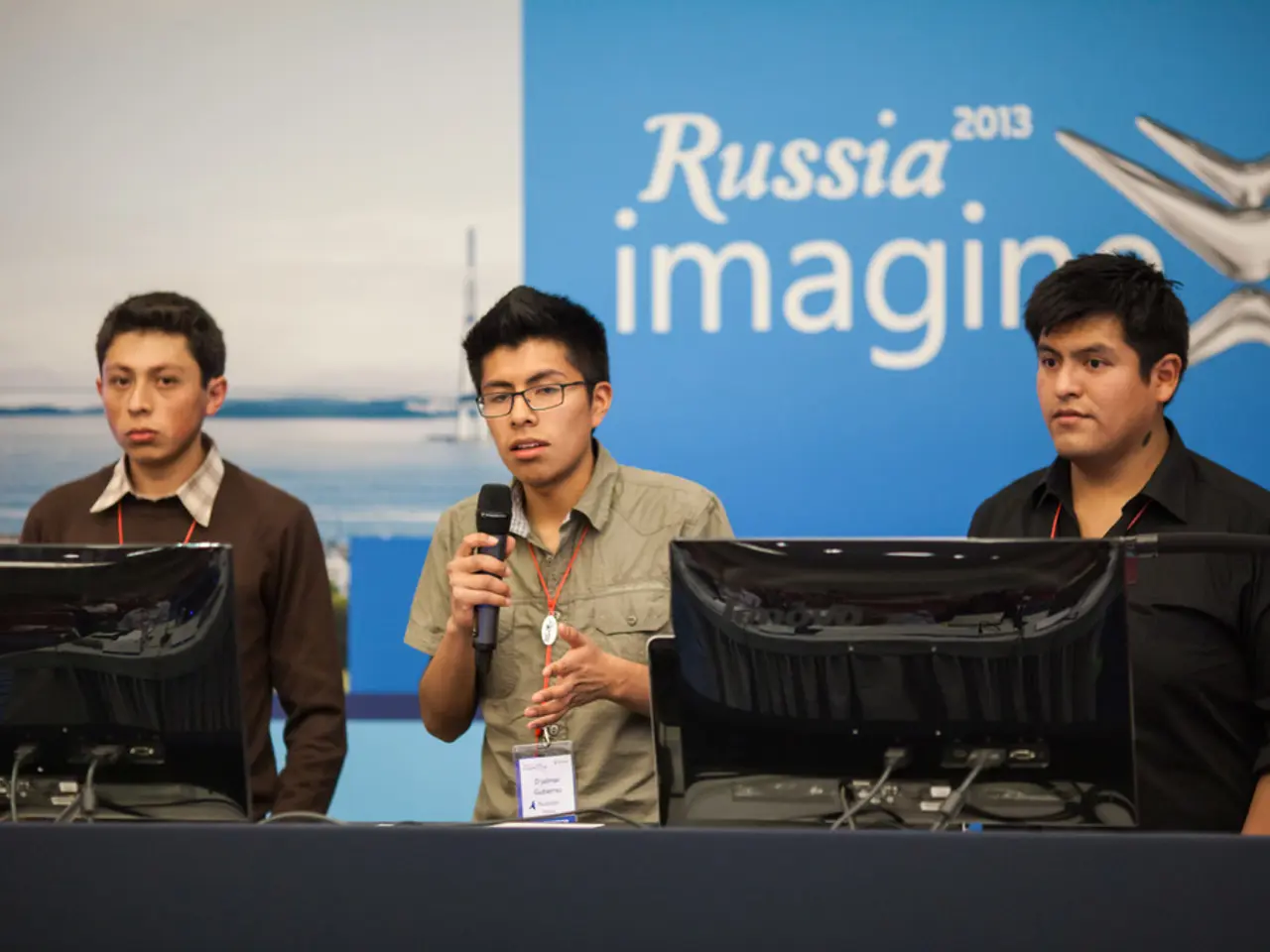Enthusiastic German-Korean Youth Orchestra Performs at Funkhaus Halberg in Saar, Korea-Connection
News Article: A Unique Cultural Exchange Through Music
On July 24, 2025, the main broadcast hall of the broadcasting house on Halberg hill in Saarbrücken-St. Johann was filled with the melodious strains of Korean music as the international youth orchestra Seoul YMCA and the Landes-Jugend-Symphonie-Orchester (LJO) Saar joined forces for a special concert. This event, part of the "Korea-Connection Saar," marked a cultural exchange between South Korea and the Saar region of Germany.
The concert featured the performance of "Arirang Fantasy," an arranged version of the Korean folk song that has deep roots in Korean life and tradition. The song, with its themes of sorrow, separation, and hope, resonated with the audience, who expressed their gratitude to conductor So il Chung for his passionate leadership of the unique ensemble.
So il Chung, a professor at Kangnam University, served as the musical director for the concert and is also the musical director and conductor of the youth symphony orchestra Seoul YMCA. The LJO, on the other hand, has been offering young, talented musicians the opportunity to become members of one of the most important youth orchestras in the region for over 40 years.
Before the concert, two orchestra members introduced the evening, presenting So il Chung and explaining the individual musical pieces in both Korean and German. As "Arirang Fantasy" began, the audience was captivated by its six variations, which deeply moved them. The applause for the young musicians did not want to end, and So il Chung received enthusiastic applause after each musical performance.
"Arirang" is a song with a long history and profound cultural and political significance in both North and South Korea. Originating as an oral folk song, it expresses themes of sorrow, separation, and hope as people crossed a hill called Arirang. The melody and lyrics have many regional variations, reflecting its deep roots in Korean life and tradition.
Culturally, "Arirang" is considered an emblem of Korean identity and resilience, especially during historical hardships such as the Japanese colonial period. The song’s themes of sadness and farewell resonated deeply with Koreans enduring oppression, making it a symbol of national unity and perseverance.
Politically, both North and South Korea embrace "Arirang" as a representation of the Korean spirit. North Korea has made it a central element in state-sponsored cultural events, while South Korea regards it as a vital folk heritage. Thus, "Arirang" serves as a shared cultural heritage bridging the North-South divide, embodying both a rich folk tradition and a potent political symbol of Korean identity, endurance, and longing for unity.
After the concert, Korean representatives came onto the stage to expressively thank the German-Korean orchestra. The evening was an extraordinary occasion for the region, as it featured a collaboration between an international and a local youth orchestra, making it a memorable event for all involved.
- The performance of "Arirang Fantasy," a rich blend of Korean culture and music, deeply moved the audience during the unique cultural exchange concert between South Korea and the Saar region of Germany.
- The captivating performance of "Arirang Fantasy" served as a symbol of Korean identity and resilience, bridging the cultural gap between South Korea and Germany, and offering a taste of Korean entertainment through music during the concert.







